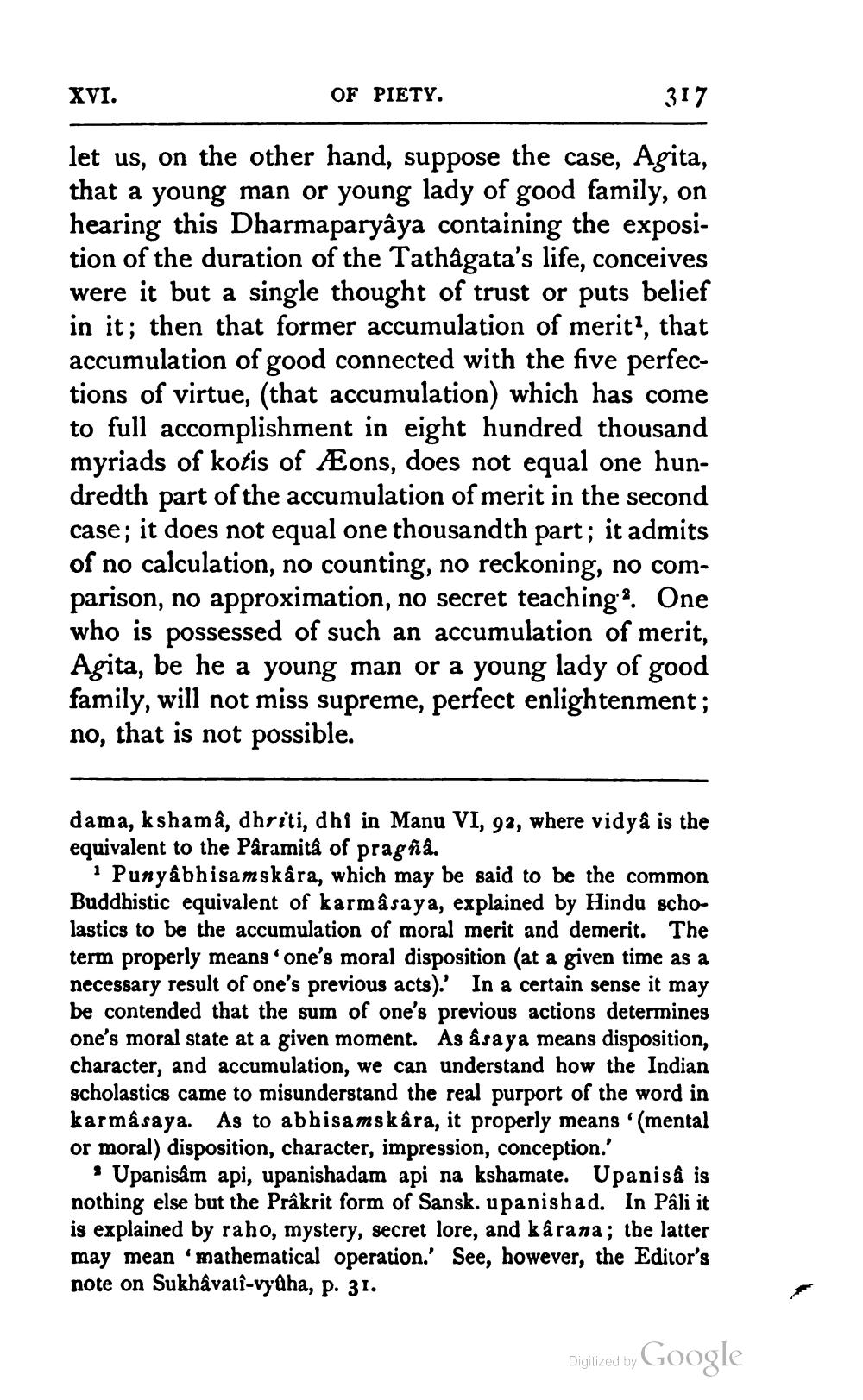________________
XVI.
OF PIETY.
317
let us, on the other hand, suppose the case, Agita, that a young man or young lady of good family, on hearing this Dharmaparyâya containing the exposition of the duration of the Tathagata's life, conceives were it but a single thought of trust or puts belief in it; then that former accumulation of merit”, that accumulation of good connected with the five perfections of virtue, (that accumulation) which has come to full accomplishment in eight hundred thousand myriads of kotis of Æons, does not equal one hundredth part of the accumulation of merit in the second case; it does not equal one thousandth part; it admits of no calculation, no counting, no reckoning, no comparison, no approximation, no secret teaching? One who is possessed of such an accumulation of merit, Agita, be he a young man or a young lady of good family, will not miss supreme, perfect enlightenment; no, that is not possible.
dama, kshama, dhriti, dhi in Manu VI, 92, where vidyâ is the equivalent to the Paramita of pragña.
i Punyâbhisamskåra, which may be said to be the common Buddhistic equivalent of karma saya, explained by Hindu scholastics to be the accumulation of moral merit and demerit. The term properly means 'one's moral disposition (at a given time as a necessary result of one's previous acts).' In a certain sense it may be contended that the sum of one's previous actions determines one's moral state at a given moment. As ásaya means disposition, character, and accumulation, we can understand how the Indian scholastics came to misunderstand the real purport of the word in karmasaya. As to abhisamskára, it properly means '(mental or moral) disposition, character, impression, conception.'
* Upanisâm api, upanishadam api na kshamate. Upanisâ is nothing else but the Prâkrit form of Sansk. Upanishad. In Pâli it is explained by raho, mystery, secret lore, and kârana; the latter may mean 'mathematical operation.' See, however, the Editor's note on Sukhâvatî-vyûha, p. 31.
Digitized by Google




